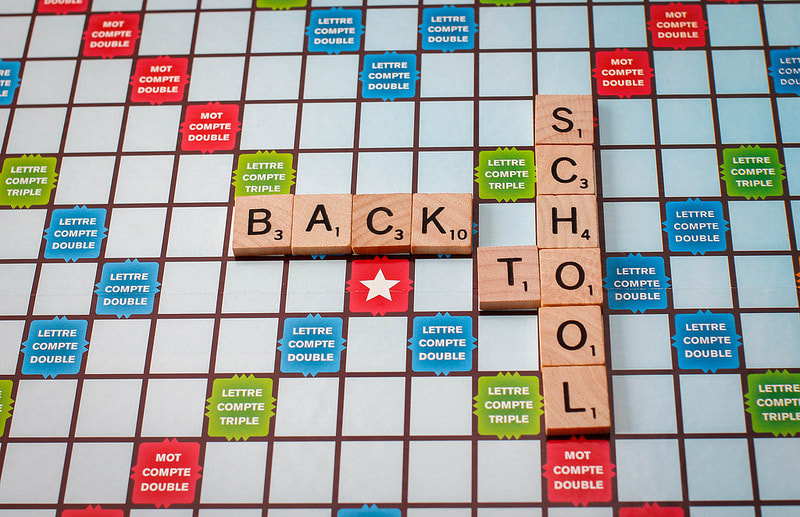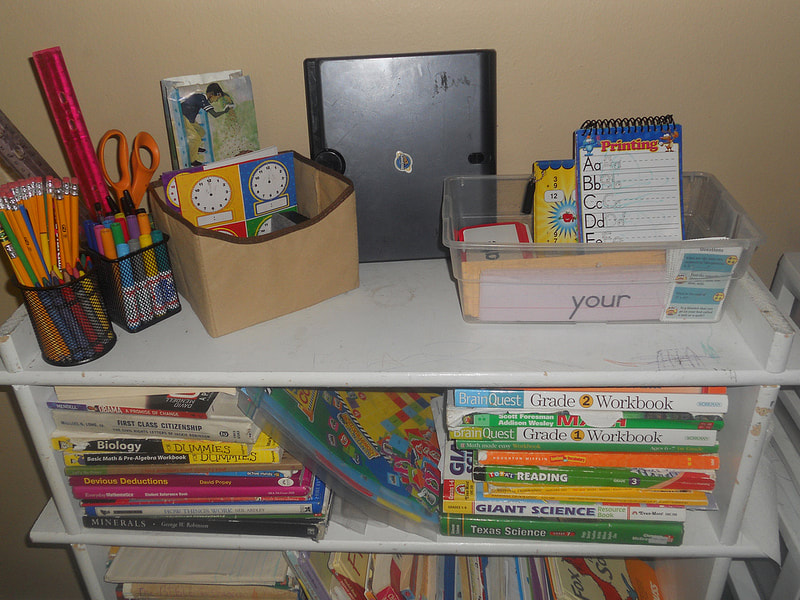|
People ask me all of the time… what should I do to move up in my career? There are several “levels” in education. Teachers, Instructional Coaches, Assistant Principals, Principals, and then a plethora of positions on the central administration level. Regardless of where you are and what you do, I truly believe following the tips below will help get you promoted.
Be the best where you are If you are a teacher, be the best teacher on your campus. Put your all into teaching. Make sure your students are performing to their potential. This will take lots of time and effort in learning the art of teaching. It will take lots of research on best practices of teaching. It will also take lots of time getting a deep understanding of your content. However, if you are the best at what you do, if you are successful where you are, then people will be willing to give you a chance at the next level. Put your head down and work Do not focus on making it to the next level. Do not focus on making it to the next level. Do not focus on making it to the next level. Putting your energy on making it to the next level means you are taking energy away from your current responsibility. Focus on the #1 tip: being the best at where you are. Put your head down and go to work. Stay focused on your current assignment and being great. Volunteer to take on tasks where there is a need I hope this doesn’t sound contradictory, but while you work at being the best where you are, take a look around your campus. What is missing? Do you see something that needs improving? If so, figure out a solution and fill that need for your campus. Go to your principal and ask if you can help in that area. Again, you must have mastered tips #1 and #2. If you go to your supervisor and ask to take on more and haven’t done a great job where you current are… they are going to shoot it down because in their head, you need to focus on your current role. Also, if you are new to the campus, you might not want to start the year off by asking how you can move up. Start off by being the best where you are, then begin to be a great team player by filling a need on campus.
1 Comment
The best thing about a new school year is the opportunity to improve. It’s like educators get two new starts a year… New Year’s in January and the start of a new school year in August. If you’d like to improve on parent engagement, this is the blog for you. Below are tips on how to build positive relationships with parents.
Meet the Teacher During this event, principals should be visible. Consider standing at the front door where most parents will enter. Greet them all with a smile and a genuine “hello”. Try to remember your students and address them by name. Ask how their summer was and ask what they are most looking forward to for the school year. During the event, after most people have arrived, walk the building. Again, greet students and their parents as you are walking around. If you have a parent who has a concern, listen intently. If you cannot quickly solve their concern, write their information down and promise to call them first thing the next morning. The important thing is to make sure you do not allow concerns to take you away from meeting and greeting your other students and parents. First Day of School The first day of school is probably the most chaotic day of the school year. Make sure you start early enough on this day to feel ready for the masses. Stand in an area where you can see most of your families as they enter. You may even want to stand outside to greet them before they enter the building. Make sure you have enough support staff stationed throughout the building to help lost students or families. Remember, the key for the first day is to be welcoming and extremely helpful. First Month of School I challenge teachers to call every parent during the beginning of school to make that first call home a positive one. I give the same challenge to administrators. Teachers aren’t the only ones who need to foster positive relationships with parents. As an assistant principal, I called parents of students who had qualified for Popsicles with the AP. We didn’t need permission from the parents for the students to attend, but it was an opportunity for me to have a positive interaction with parents. Being the primary person handling discipline, it was important for me to build positive relationships with our parents. For the first month of school, the assistant principal can observe students in the hallway, in the cafeteria, and/or during transitions. Jot down names of students who are meeting school expectations and take a few minutes each day to call those students’ parents to brag on the students. Also, if you know you have students who had difficulty meeting expectations the year before, seek them out and look for something good. Find them doing something right, and then take that opportunity to praise them (and call their parents for something positive). Open House Open House is a great time to give a State of the School address. Keep it short, but this is a great time to update parents on how the school performed the previous year. It is also a great opportunity to share goals for the new year, guarantee what the school will provide for them and their child, and include specific ways you need them to contribute to their child’s education. When I started doing this at a school where I was a new principal, I heard from parents that they never knew how their school was performing. I learned that no matter how great or how poor we performed, we owed it to parents to let them know. Transparency was extremely important. How do you build positive relationships with your parents? A Year of Self-Care
The beginning of school is an exciting time. Teachers return energized, fired up, and ready to go. Parents drop their students off with glee in their hearts. Students return in their new clothes, new shoes, new backpacks… ready to see their friends again. The beginning of school is full of joy and excitement. Things begin to take a bit of a change around early October. The joy becomes fatigue. Parent complaints begin to start pouring. Students are dragging in each morning (when they decide to come). Teachers are a bit tired because the day to day grind begins to take a toll. The one person who is supposed to keep it all together is the campus leader. Although the campus leader is expected to keep it together, they themselves are experiencing the same drain as everyone else. How does the leader keep everyone around them excited about teaching and learning when the leader is just as tired? The key to being the positive influence on the campus is self-care. The leader must learn to take care of themselves so they are ready to care for others. Tips for Self-Care Find a hobby Education is hard work and time-consuming. Working every minute of the day may seem noble, but it’s not healthy. Find something (non-work related) that you find interesting. Reading, shopping, working puzzles, working out, sporting events, etc. Etch out time each day to indulge in your hobby. Find a time during the day to refuel For me, lunchtime seems to be my time to refuel mid-day. When I was a teacher, I ate lunch with a group of ladies in my classroom. We talked about our families and our personal lives. One day we realized we hardly ever discussed work during our lunchtime. That actually was a good thing. That was our time to relax mid-day and refuel. As a leader, I’ve done a few things. On one campus, the leadership team ate lunch together. Again, we mostly talked about our family and our personal lives. The mid-day refuel was just what we needed to make it through the remainder of the day. As a leader, when I’ve been in places where I didn’t eat with a group, I would close my office door, eat, and either read, surf the net, or work a crossword puzzle for 30 minutes. It is a great way to relax and unplug from the daily grind. Find and consistently follow routines (morning and evening) I’ve read many articles about what successful people do to start their day and to end their day. I’m not sure mimicking what “successful” people do is a wise move because we all are wired differently. I, instead, would suggest that you find what works for you. I’ve found that for me, my morning routine of working out on the treadmill, reading my daily devotion, and praying works wonders for me. The treadmill workout gets my blood flowing and helps me prepare myself for the grind of the day. The devotional reading and prayer time gets my spirit ready for whatever may come my way… and in leadership, you never know what will challenge you each day. Self-care is something we usually don’t think of until we are drowning. I challenge you this year to plan for it and make it a daily habit to take care of you. Do you accept the challenge? August is here and summer is coming to a close. Nearly all campus leaders are back at work and teachers will soon return as well. One of the most important things to do as you prepare for a new year is to organize your life.
The weekend before I returned after a 2-week vacation, I organized my house and as soon as I returned to work, I organized my office. I realized that after many years in education, I do this each time I return to work after a long vacation… Christmas break and summer break. The reflection also made me realize how much this one act makes me feel ready for the challenges of the months ahead. Not only does de-cluttering help you be prepare for what’s to come, it also can help with time management. If things are well-organized, you’ll save time. Who doesn’t want to gain time back since it seems like we never have enough of it. Read below for tips on how to organize your life before the school year gets underway. Home Clear off those countertops that have become overly cluttered from the hectic lives most of us live. The kitchen counter that accumulates the junk mail. The breakfast table that may accumulate the opened mail that has not found a home. The living room that may have accumulated the throw blankets used for those cozy days/nights on the couch vegging out. The bedroom nightstands that accumulate any and everything. Clear all counters and find homes for everything that seems to be out of place. Designate a home for these things and create a habit to put all things in their places each day. Work Clear off all paperwork from visible areas (even those in nice, neat piles!). JAs you are cleaning, place the papers in piles for filing. Make files for each category and file the papers away. Consider getting two bins (in and out bins) for your desk. Designate one for mail that is coming in to you. Make an effort each day to clear out the “in” box and place in the “out” box. Try to minimize paperwork. When people offer to give you documents, ask them to mail you the electronic copy. When you receive it electronically, save it to a file on your computer. Classroom Follow office directions above for your desk. In addition to office de-cluttering, designate a place in your classroom for the following items:
|
AuthorPaula Patterson is a Superintendent of Schools who shares practical points on leadership. Archives
May 2020
Categories |





 RSS Feed
RSS Feed